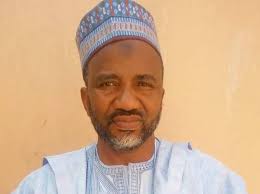On Friday, December 7, 2018, Mallam Nuhu Ribadu, pioneer chairman of the Economic and Financial Crimes Commission (EFCC), stood before a global audience in Putrajaya, Malaysia—at the 2018 International Anti-corruption Day celebrations—as joint winner, with Leonard McCarthy, a former Vice President of Institutional Integrity at the World Bank Group, of this year’s Sheikh Tamim Bin Hamad Al Thani International Anti-Corruption Excellence Award in the Lifetime/Outstanding Achievement category.
The Sheikh Tamim bin Hamad Al-Thani International Anti-Corruption Excellence Award is presented annually onInternational Anti-Corruption Day (9th December) in “recognition and appreciation to those who have contributed to the global campaign against corruption. The Award recognizes individuals and organizations who have dedicated themselves to combat corruption in some capacity.
“The greater purpose of the Award is to serve as a tool that highlights exemplary and noteworthy actions and good practices on a global scale, to recognize, promote, collect and disseminate anti-corruption models from around the world; to raise awareness, support and solidarity to the fight against corruption; as well as to encourage and inspire similar and new initiatives towards a corruption-free society.
“The Award hopes that through its public image, the visibility of those who are fighting corruption is not only enhanced but also celebrated across the world and hopes to motivate governments, academic institutions, the media and civil society to adopt and understand the principles of the United Nations Convention Against Corruption (UNCAC) and collaborate towards its implementation.”
It was an honour well-deserved and few people would have been surprised that Mallam Ribadu was the centre of attention of the global anti-corruption movement at the grand ceremony at the Putrajaya International Convention Centre, which had in attendance the Prime Minister of Malaysia, Dr Mahathir Bin Mohamad, and Emir of Qatar, Sheikh Tamim bin Hamad Al-Thani.
The organisers said Mallam Ribadu’s “nomination was carefully reviewed by the Assessment Advisory Board and the High-Level Award Committee and was considered to contain and exemplify the values and virtues that this Award stands for.”
As head of EFCC between 2003 and early 2008, Mallam Ribadu put the EFCC on the global anti-corruption map and left no one in doubt that he not only knows his onions when it comes tackling corruption but that he has the courage to boot. Many things prepared Mallam Ribadu for his role at EFCC and the honour accorded him.
After studying law at Ahmadu Bello University and graduating from the Nigerian Law School in 1984, he opted for a career in law enforcement. He joined the Nigerian Police where he served both as a general duty policeman and a prosecutor. As a policeman, he engaged criminals in the streets of Lagos, and as a prosecutor, he was involved in almost all high-profile cases the police worked on.
But the EFCC presented a different challenge. When the Commission was created in 2003, Nigeria’s image was at the lowest ebb in terms of cooperation with foreign law enforcement agencies to deal with money laundering and other financial crimes. This made it difficult for the county to be integrated into the global financial system. Mallam Ribadu and his team had tostart from the scratch to clean up the image of the country and tackle a monster that was giving Nigeria the most headache at the time—the proliferation of cross-border financial scam, known as 419 after the section of the criminal code that deals with advance fee fraud. A small cartel of Nigerians leveraged on loose law enforcement and financial regulations to defraud foreigners who were eager to make a killing from the country.
The criminals and their collaborators in banks created a reputation burden for Nigeria. No one wanted to do business with the country. Within the first few weeks of starting the EFCC, Mallam Ribadu decided to take on this group of powerful criminals. Some were brought to justice, while others are still facing criminal charges.
After halting the spread of the immediate problem, the Commission shifted its focus on sanitizing institutions. It targeted banks, financial institutions and law enforcement agencies, ushering a banking reform that created a new dawnand sanity in the financial sector.
While taking on
Blueprint gives you the latest Nigerian news in one place. Read the news behind the news on burning National issues, Kannywood, Videos and the Military



